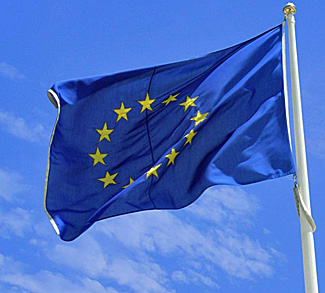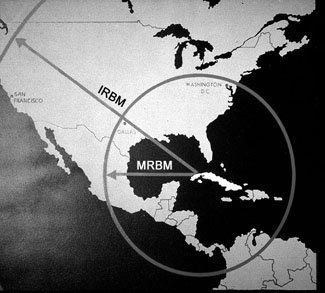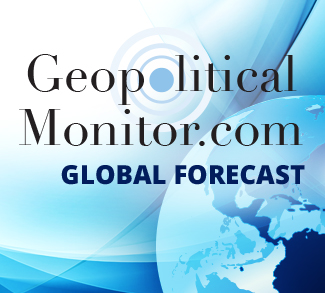FORECAST
Although the ink on the Lisbon Treaty hasn’t even dried yet, bureaucrats in Brussels have already begun to plot the EU’s rise as a superpower.
The adoption of the Lisbon Treaty will represent a major victory for European integration, especially since the memory of the European Constitution’s crushing defeat is still fresh in the mind of many Europeans. Once passed, the Lisbon Treaty will pave the way for the EU to play a larger role in international politics. This role however will be constrained by the EU’s inability to supplement diplomatic influence with comprehensive military power.
According to reports in this week’s Telegraph, confidential negotiations on the implementation of the Lisbon Treaty have produced a series of bold proposals aimed at expanding the EU’s international clout. These plans include: allowing the EU to negotiate treaties on behalf of all member countries, establishing embassies worldwide (with initial ‘pilot’ embassies in New York, Kabul, and Addis Ababa), and the establishment of an EU ‘foreign minister’ to preside over the European External Services (EEAS).
While the leaked proposals are certainly not lacking in ambition, they are almost exclusively centered on developing the EU’s international diplomatic presence.
It seems unlikely that the EU will make real progress on establishing a permanent European army in the medium-term, meaning that EU foreign policy will remain toothless. The European Constitution debacle robbed European integration of much of its prior momentum, and Brussels has hence been forced to spend a great deal of political capital selling the Lisbon Treaty to Euro-skeptics. Given the difficulties that the Lisbon Treaty has faced in the Czech Republic, Ireland, and perhaps Britain if David Cameron is elected next year, any attempt to create a compulsory collective security framework for the EU will be a long time coming.
Although the prospects for the establishment of a European military seem a distant possibility at present, America’s hegemonic decline will inevitably change how some Europeans view defense.
That Europe has relied heavily on NATO for its defense since WWII is no secret, nevertheless this situation will not persist forever. The trans-Atlantic alliance has historically been an uneven relationship, with Washington shouldering a disproportionate burden in defense spending throughout the Cold War to present. The reality of the international post-credit crunch may soon change this dynamic. As an increasingly cash-strapped United States is forced to scale back overseas defense commitments, European countries will be faced with a decision of whether to increase military capabilities under the umbrella of NATO, or establish a defense framework separate from NATO under the auspices of the EU.
How European countries react to waning American military primacy will be a determining factor for the EU’s superpower prospects. Military power is at more of a premium in an international environment characterized by competition and multipolarity. As such, the idea of a supra-national army may become more palatable to the EU’s constituent populations.
Media assertions that the Lisbon Treaty is setting the stage for an EU superpower should be tempered by the fact that real diplomatic influence requires an EU with not just economic, but political and military cohesion as well. Until the EU develops the institutional framework necessary to deploy military power in a decisive and timely manner, the bloc will be at a diplomatic disadvantage vis-à-vis BRIC countries and the United States.
SUMMARY OF EVENTS: October 5 – 12, 2009
WORLD
In the most profound financial change in recent Middle East history, Gulf Arabs are planning – along with China, Russia, Japan and France – to end dollar dealings for oil, moving instead to a basket of currencies including the Japanese yen and Chinese yuan, the euro, gold and a new, unified currency planned for nations in the Gulf Co-operation Council, including Saudi Arabia, Abu Dhabi, Kuwait and Qatar.
Big oil producing nations denied a British newspaper report on Tuesday that Gulf Arab states were in secret talks with Russia, China, Japan and France to replace the U.S. dollar with a basket of currencies in trading oil.
The United Nations called on Tuesday for a new global reserve currency to end dollar supremacy which has allowed the United States the “privilege” of building a huge trade deficit.
The U.S. dollar continued to tumble against most Asian currencies Thursday, prompting a wave of foreign-exchange intervention by central banks in South Korea, Taiwan, the Philippines and Thailand seeking to limit damage to their export industries.
NORTH AMERICA
Canada
A written statement filed by a former Canadian diplomat, with information about the possible torture of Afghan prisoners, has been ordered sealed on the grounds of national security.
United States
The U.S. threatened to derail a deal on global climate change Wednesday in a public showdown with China by expressing deep opposition to the existing Kyoto protocol.
The Afghanistan war reached its once-unthinkable eighth anniversary Wednesday as President Barack Obama, seeking a revamped strategy for the increasingly unpopular conflict, focused more closely with his war council on neighboring Pakistan’s role in the fight against al-Qaida.
The request for troops sent to President Barack Obama by the top U.S. commander in Afghanistan includes three different options, with the largest alternative including a request for more than 60,000 troops, according to a U.S. official familiar with the document.
Taliban-led forces fighting U.S. and Nato troops in Afghanistan have increased nearly fourfold since 2006, according to a US intelligence estimate presented to the U.S. president.
CENTRAL AMERICA & THE CARIBBEAN
Honduras
The coup-backed government in Honduras on Monday lifted a decree restricting civil rights, in a step toward dialogue with ousted President Manuel Zelaya, who is still holed up in Brazil’s embassy.
U.N. human rights experts voiced concern Friday at reports that former paramilitaries from Colombia had been recruited to protect wealthy people and property in Honduras after that country’s military coup.
SOUTH AMERICA
Colombia
Colombia said on Tuesday it has evidence that Colombian Marxist rebels are camped inside neighboring Ecuador, and asked leftist President Rafael Correa to take action against the drug-running guerrillas.
WESTERN EUROPE
The European Union has drawn up secret plans to establish itself as a global power in its own right with the authority to sign international agreements on behalf of member states.
France
The French authorities have arrested a physicist who worked for years at CERN, the huge nuclear research center in Switzerland, on suspicion of links to Al Qaeda’s affiliate in North Africa, the center said Friday.
EASTERN EUROPE
Russia
Moscow possesses no information to suggest that Russian scientists are secretly involved in the development of Iran’s nuclear program, national security chief Nikolai Patrushev said on Tuesday.
The new U.S. missile defence plan “raises more questions than answers,” Russian Foreign Minister Sergei Lavrov said on Friday, warning that Moscow could still have objections to the revised missile shield.
Ukraine
Ukraine continues shipping arms and military equipment to Georgia, a member of the Ukrainian parliament said on Thursday.
Ukraine has not received requests from the United States to host anti-missile facilities on its soil, President Viktor Yushchenko said on Friday.
MIDDLE EAST
Iran
Iran accused the United States on Wednesday of involvement in the disappearance of a technology university researcher “rumored” to be involved in Tehran’s nuclear program, Iranian media reported.
Israel/Palestinian Territories
Hamas leaders on Monday launched an unprecedented attack against President Mahmoud Abbas, saying they no longer consider him a Palestinian after he agreed to suspend efforts to go after Israel for alleged war crimes in Gaza.
Palestinian officials on Tuesday accused Israel of triggering violence in East Jerusalem to justify a crackdown and to tighten its grip on the disputed city, one even warning of a “battle of Jerusalem.”
Members of the UN Security Council will meet to discuss Libya’s request for an emergency session on a report that claimed war crimes were committed by Israel during last year’s offensive on Gaza.
The UN Security Council will discuss the Goldstone report on the Israeli military incursion into Gaza at the turn of the year, during the October 14 open Middle East debates, a Libyan diplomat told journalists on Thursday.
EAST ASIA
North Korea
North Korea said Tuesday it was willing to return to six-nation nuclear disarmament negotiations, but only on condition it first holds talks with the United States to improve “hostile relations”.
SOUTH ASIA
Afghanistan
Incumbent Hamid Karzai must offer jobs to supporters of his main rival to avert a crisis if he claims a first-round victory in Afghanistan’s presidential poll, a regional strongman backing Karzai’s opponent said on Monday.
A fierce weekend clash in the remote mountains of eastern Afghanistan that left eight US soldiers dead also killed more than 100 Taliban fighters, NATO’s International Security Assistance Force said Tuesday.
A large bomb exploded outside the Indian embassy in central Kabul on Thursday, killing 17 people and wounding 76, in the latest of a series of attacks by militants on diplomatic and government buildings in the Afghan capital.
Pakistan
The new chief of Pakistani Taliban militants who U.S. and Pakistani officials said might be dead has surfaced Monday to meet journalists in his stronghold of South Waziristan.
A suicide bomber dressed in military uniform struck inside a heavily fortified UN office in the Pakistani capital Islamabad on Monday, killing four Pakistanis and an Iraqi working for the food agency.
Pakistan braced for more militant attacks ahead of an anticipated offensive against a Taliban stronghold, as the insurgents said they bombed a U.N. relief agency because international aid work was not in “the interest of Muslims.”
Pakistan’s army on Wednesday expressed “serious concern” about a U.S. aid bill that critics say contains conditions that amount to a humiliating violation of sovereignty as parliament began a debate on the U.S. aid.
A suspected suicide car-bomber killed 49 people on Friday in the Pakistani city of Peshawar in an attack that the government said underscored the need for an all-out offensive against the Pakistani Taliban.
SOUTHEAST ASIA
Myanmar
Myanmar’s detained opposition leader Aung San Suu Kyi was granted a rare meeting Friday with top Western diplomats to discuss sanctions imposed on the military-ruled nation.
AFRICA
Ghana
The energy giant Exxon Mobil has agreed to pay about $4 billion for a minority stake in an oil field off the coast of Ghana, a region that has emerged as a major new petroleum province, a person with knowledge of the matter said Tuesday.
Guinea
Guinea’s main opposition coalition has said it will not participate in talks aimed at ending a political crisis in the West African country unless the country’s military leader resigns.
Yemen
A leading Yemeni religious leader has accused Iran of inciting violence in the north of the country, where a predominantly Shia Muslim group is waging a war against the government.




